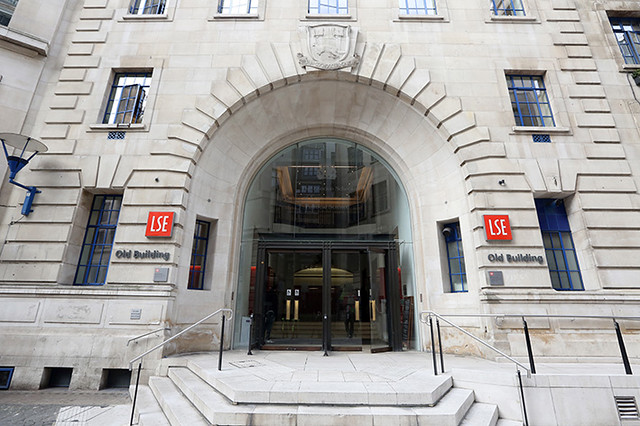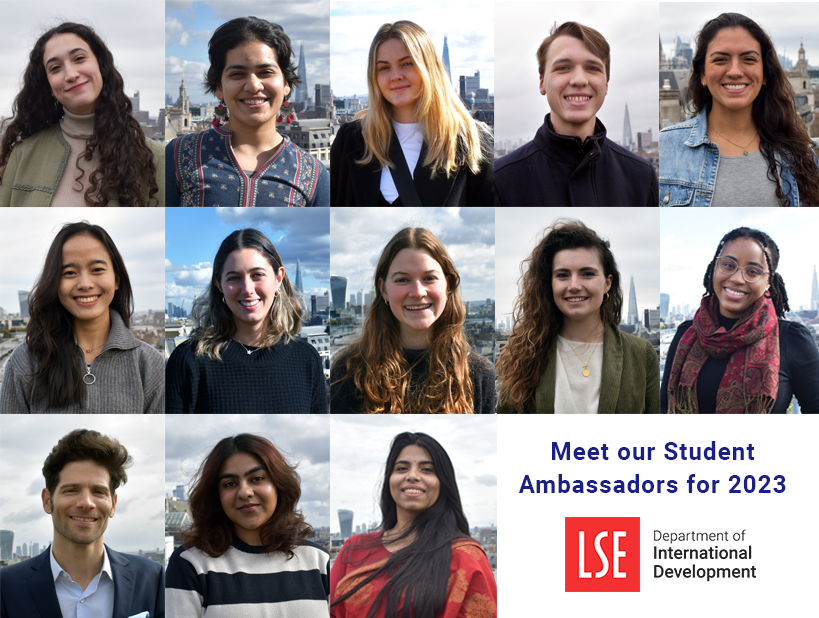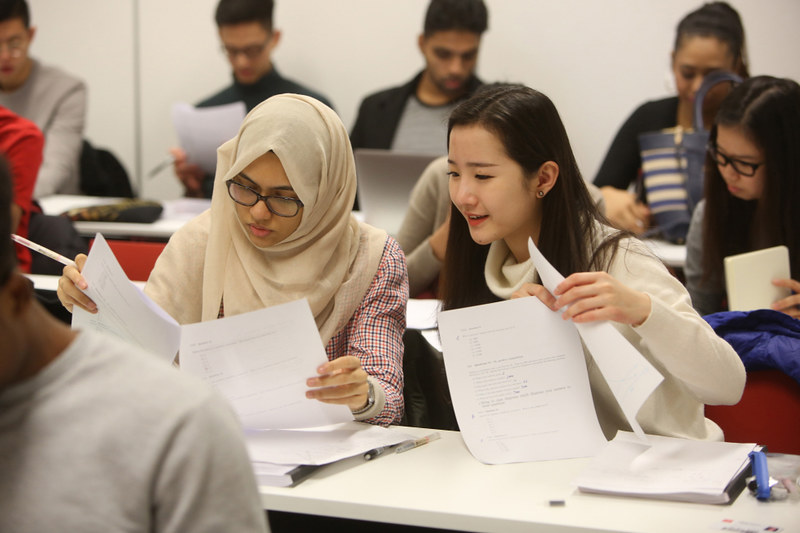We asked our 2023/24 Student Ambassadors Angela, Alice, Libby, Dave, Ika and Kristina to share their experiences on working, volunteering, or interning while studying, with the results are summarised below. We hope these help answer some of the questions incoming students might have about working whilst studying at LSE.
Please feel free to email us, intdev.mentors@lse.ac.uk, if you have further questions!
What opportunities are there to work whilst studying for a master’s degree at LSE?
Our students have found a variety of opportunities to work, volunteer, and intern while at LSE. Organisations include charities, community groups, retail, consulting firms, start-ups, and research positions. Roles and job descriptions range from sales assistant, business executive, public affairs officer, and accessibility mapper. Some students have seen their roles grow and develop over time, while others have been on a fixed-term contract.
It might be worth bearing in mind that some of our students will be studying part-time and have the time to work alongside their studies. Sometimes, students continue to work for an employer they’ve been with for several years.
Quotes from the Ambassadors:
“I started the paid role as an accessibility mapper. In this role, I travelled to different areas of London with other accessibility mappers to collect information on the accessibility of different social venues to upload on the Sociability app. I now work as an operations officer with them. My predominant roles currently are to assist in managing the mapping team and lead the data quality and assurance tasks.” – Libby
“I volunteered my time serving fresh meals to people facing food insecurity in London”. – Ika
How many hours a week can you work? Are there visa restrictions?
We cannot stress enough how important it is to check your visa conditions for paid work. You can find out more about this on the LSE’s Working on a Visa in the UK page. In most cases, visas didn’t restrict the students’ ability to find opportunities. Volunteering and unpaid internships do not affect visa conditions. However, it’s worth remembering that the year will be full-on, so think about time management before committing to anything. You can also talk to your mentor about this.
Quotes from the Ambassadors:
“I am on a student visa, which means I can only work 20 hours per week, but since this was a very informal and unpaid internship, and it was below 20 hours a week, I was not restricted by the visa at all.” – Kristina
How can we find out about these opportunities?
LSE has several resources you can tap into once you have enrolled. The Career Hub is a focal platform where jobs and opportunities within and outside the university are shared. We also have the incredible LSE Volunteer Centre, which helps match students with volunteer opportunities – one-off, regular sessions, in-person, group or even remote volunteering. This can help you connect with the London community and experience life off campus. You will also receive a weekly bulletin from ID once you start at LSE, in which we include a section on opportunities. For research opportunities around the school, we encourage you to follow the relevant centres and institutes for your research interests as they often share opportunities on their social channels.
Why would anyone want to work/volunteer/intern whilst studying?
This is entirely down to the individual, but most say they want to enrich their year in London and gain experience. Some have had to work to support themselves financially. Those who have taken up these opportunities have all said how much they have enjoyed the experience and, in nearly all cases, how it’s helped them further develop their perspectives as development practitioners. It’s also been a nice way to break up studies and widen their networks.
Quotes from the Ambassadors:
“I knew I would need to work throughout my MSc to support myself while living in London. I was searching for flexible jobs related to addressing health or social inequalities. Through this role, I have gained experience as a team leader, managing teams, and have continued to grow my understanding of the social inequalities faced by people living with a disability.” – Libby
“I wanted to share my love for reading with kids, showing how books do not have to be just schoolwork. And I wanted to get a break from university work whilst doing something fun and rewarding.” – Alice
“Since I didn’t have much experience before starting my postgrad at LSE, one of the careers advisors suggested volunteering or internship during my studies to gain more (professional) experience and boost my employability. While I was looking for opportunities to do this, I saw a message come by in one of the group chats about this start-up research project, which sounded very interesting and quickly seemed like it wouldn’t be incredibly time-consuming and could thus be balanced easily with my schoolwork.” – Kristina
How should I manage my time working and studying?
Here are some time management tips from our Ambassadors:
“Plan so you know how to efficiently split your time and ensure you have time for yourself and some free time.” – Alice
“Determine which task is urgent versus critical. Different people will ask you for different things, but not everything needs to be done at that point.” – Dave
“Try to make a to-do list so you can set your agendas based on your priorities.” – Ika
“I was volunteering at Lincoln’s Inn Park so it was very easy for me to go after classes or after study sessions. Sometimes you think that you won’t have time to volunteer but there are many options available that can help you connect with the community around you.” – Angela
Any tips or considerations before I start looking for an opportunity?
We strongly advise you to think about your workload and how you work best. Have an idea of what you’d like to get out of the experience and write these down. Speak to your mentor and book an appointment with the careers team to determine what suits your needs best. Most importantly, go into the search with an open mind! Also, remember – working whilst studying isn’t for everyone, so if you’d rather focus on your studies and other extracurricular activities, that is also perfectly fine!
Quotes from the Ambassadors:
“I’d recommend attending LSE events on volunteering and job opportunities. I’ve found them very helpful.” – Angela
“Volunteering does take a lot of effort, especially during our busy programmes, but it is also quite rewarding and can open doors for the future. Working in retail is helpful if you want some money but do not want to do other challenging brain work.” – Alice
“Be open about this and ask everyone for their opinion. Do not worry about sounding too “keen” because everyone is looking for a job. It is important to narrow down what you want to do before you apply because lack of interest is obvious in a random job application.” – Dave
“There are a wide range of resources available, for example LSE Careers, LSE Volunteer Centre. So many volunteering opportunities are available, and some of them can be a one-off event. Doing activities outside academia can be a great experience.” – Ika
The views expressed in this post are those of the author and do not reflect those of the International Development LSE blog or the London School of Economics and Political Science.
Featured image credit: Students at the LSE Career Fair. LSE.





